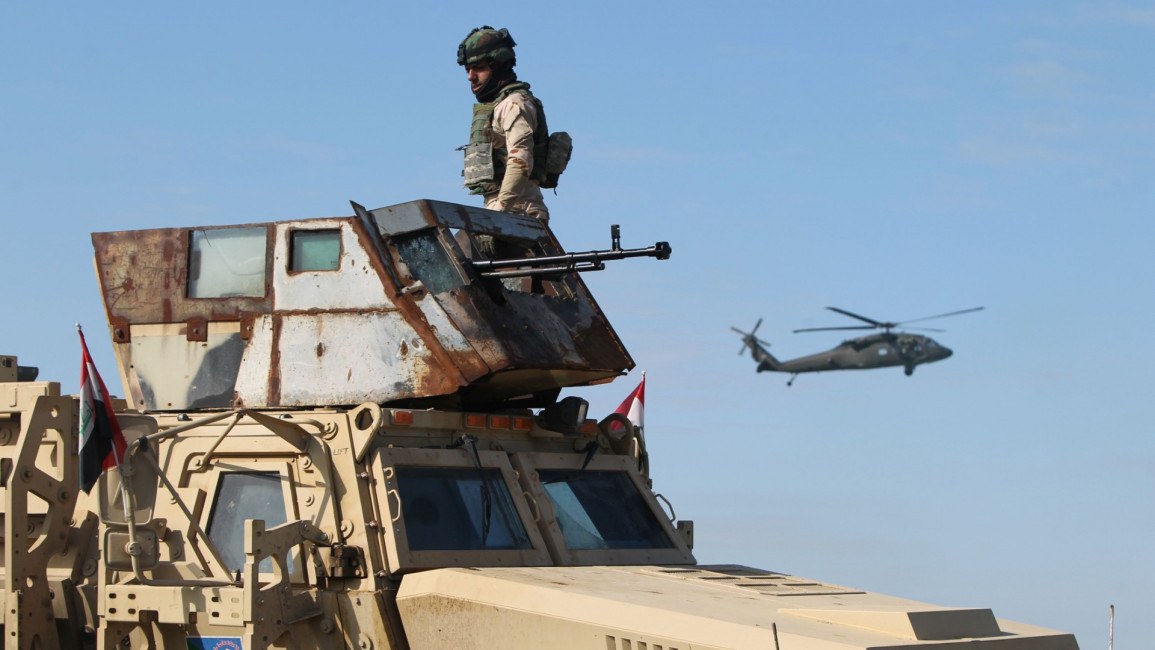US military investigating claim of Iraq-Kuwait border blast
Iraq later said an explosion targeted a US-led coalition convoy on Tuesday in the Taji area, north of Baghdad, causing only minor damage.
No one has yet claimed responsibility for the attack.
The little-known Ashab al-Kahf group claimed in an overnight statement it destroyed “equipment and vehicles belonging to the American enemy” in a bombing targeting a border crossing south of the Iraqi city of Basra.
The group later published an 11-second video it claimed showed the blast, according to the SITE Intelligence Group, which monitors militant groups. The out-of-focus video shows what appeared to be an explosion and lights in the distance, with a man speaking in Arabic. The Associated Press could not immediately verify the video.
US Army Maj. John Rigsbee, a Central Command spokesman, said the American military was looking into reports of the explosion.
The Iraqi military denied the border attack took place, calling the video a fabrication intended to “mislead public opinion.” A Kuwait military statement carried by the state-run KUNA news agency similarly denied reports about “a sabotage attack on a northern border post.”
Twitter Post
|
Kuwait has been a staunch US ally since the 1991 Gulf War expelled Saddam Hussein’s occupying Iraqi forces. Today, Kuwait hosts some 13,500 American troops, many at Camp Arifjan, home to the forward command of U.S. Army Central.
Since the 2003 US-led invasion that toppled Saddam and the later war against the Islamic State group, American troops and contractors sometimes travel by road with equipment and supplies between the two countries.
Ashab al-Kahf, or “Companions of the Cave” in Arabic - a reference to a Christian and Islamic story about youths escaping religious persecution hiding in a cave for hundreds of years -emerged alongside renewed threats by Shia militias amid rising US-Iran tensions.
In January, an American drone strike killed a top Iranian general in Baghdad. Tehran responded with a ballistic missile attack that wounded dozens of American troops at a military base in Iraq.
The Ashab al-Kahf initially threatened US forces in April and claimed an attack on a convoy in July in Iraq’s Salaheddin province. On Aug. 9, another explosion targeted a convoy in the southern Dhi Qar province, reportedly causing minor damage.
Agencies contributed to this report.
Follow us on Facebook, Twitter and Instagram to stay connected



